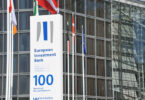During the first quarter, the Bank for International Settlements (BIS) surveyed 50 central banks about the potential use of central bank digital currencies (CBDC) for cross border payments. The indecisive results indicate it’s still early days, especially since most countries have yet to decide whether to launch a CBDC. But it looks like CBDCs might trigger greater foreign exchange controls.
One area where there was slightly more clarity was whether countries would allow incoming foreign visitors to use the local retail CBDC while visiting, as they would with physical cash. Only 29% of respondents had a clear view, made up of 25% saying visitors can use the CBDC, and 4% saying no. This is a relatively simple decision because it maps to current habits.
There was far greater concern about allowing retail CBDC usage outside of the country because of a lack of control.
And even greater consternation about the potential for a foreign CBDC or global stablecoin to be used domestically. Apart from the economic impact of local dollarization, there were also concerns about a lack of traceability when it comes to tax collection if a foreign currency is being used locally.
Currently, 26% of respondent countries already have restrictions on the use of a foreign currency within their borders. Of the 66% that said they don’t have any restrictions, 39% of respondents said they’d contemplate imposing restrictions if CBDCs were introduced.
These survey results all relate to retail or mainstream use of CBDCs.
Meanwhile, several trials are exploring the use of a wholesale CBDC (banks only) for cross payments, referred to as a multi-CBDC (mCBDC). The survey asked whether the central bank was considering making its CBDC interoperable with foreign CBDCs for this purpose. The vast majority (70%) were either undecided or said maybe later. Another 28% said they were interested in interoperability and 2% said no.
Three of these wholesale mCBDC projects are currently ongoing. One is the trial between the Swiss National Bank and Banque de France for settling tokenized security transactions, Project Jura. Another is the mCBDC Bridge project between the central banks of Thailand, Hong Kong, China and the UAE. And a third is Project Dunbar, in which the Monetary Authority of Singapore is trialing a single DLT solution where banks can use multiple CBDCs for cross border payments. The BIS Innovation Hub is involved in all three.






